Keeping tabs on coronavirus symptoms
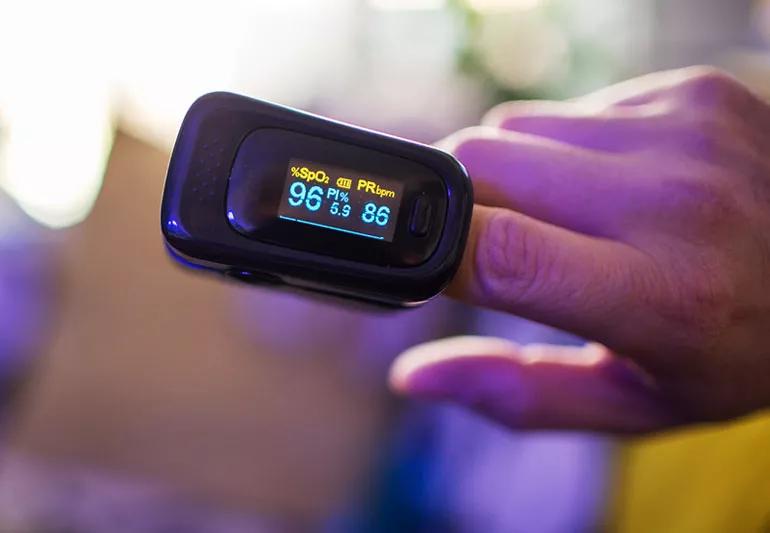
First, it was hand sanitizer and disinfectant wipes. The latest item flying off the shelves in response to the 2019 novel coronavirus? The pulse oximeter, a medical device that clips to your finger to measure the amount of oxygen in your blood.
Advertisement
Cleveland Clinic is a non-profit academic medical center. Advertising on our site helps support our mission. We do not endorse non-Cleveland Clinic products or services. Policy
But is this something you actually need in your medicine cabinet? The answer is, it depends, says pulmonologist Wayne Tsuang, MD.
He breaks down what a pulse oximeter — or “pulse ox”— can tell you, and whether you might want to get one.
Oxygen is the fuel your body needs to function. Insufficient oxygen in the blood can interfere with the function of the heart and brain.
Doctors have discovered that some people with COVID-19 have dangerously low blood oxygen — even though they don’t feel short of breath.
“We’re seeing reports of ‘silent hypoxia,’ or low oxygen levels in some patients without severe symptoms,” Dr. Tsuang says.
In response to those reports, people have started buying pulse oximeters to keep tabs on their oxygen levels if they get sick.
Advertisement
Pulse oximeters come in a wide variety of styles and price points. Dr. Tsuang recommends buying one from a reputable store or website, such as a pharmacy or medical device supplier.
Some smart watches and fitness trackers also measure blood oxygen saturation. But they might not be as reliable as medical devices, he cautions, so take the numbers with a grain of salt.
What should you be looking for? A healthy oxygen saturation is typically above 90%. If your number dips below 90%, Dr. Tsuang says, call your doctor for advice.
Remember, too, that low oxygen is just one sign of COVID-19. Even if you have a healthy blood oxygen level, don’t ignore other possible symptoms, like cough or shortness of breath.
“The pulse ox is just one piece of data,” says Dr. Tsuang. “If you have any concerns or questions, your doctor will look at all of your symptoms and vital signs to get the whole picture.”
Advertisement
Learn more about our editorial process.
Advertisement
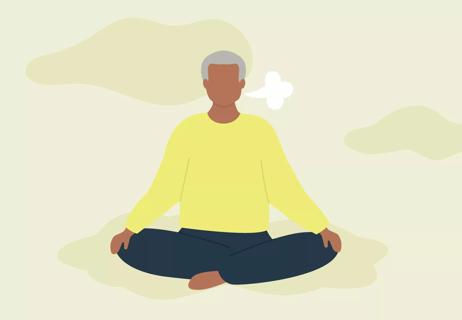
Breathing techniques may help move your body into a more relaxed and stress-free state
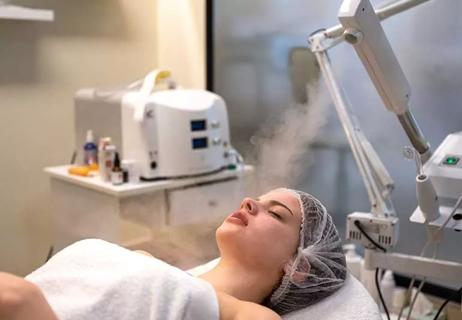
This supercharged oxygen treatment is unregulated and may do more harm than good
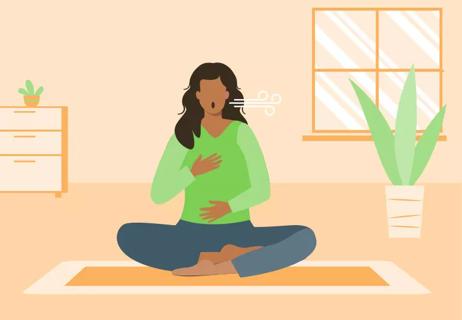
Focusing on regulating your breath can help calm your mind
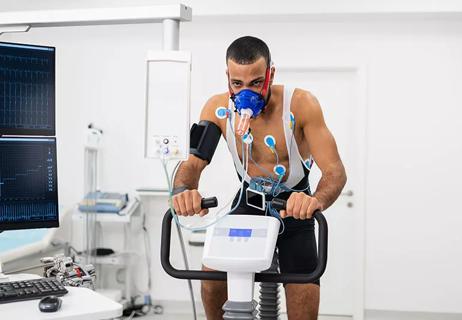
Use your oxygen uptake number as a way to help you train or work out more efficiently

Follow these tips, like hand washing and self-care, to keep illness at bay as you celebrate the season

Diaphragmatic breathing, pursed lip breathing and huff coughing can help manage COPD symptoms, like chest congestion and shortness of breath

Most can return to work or school when they’re symptom-free for 24 hours

Start having sex about 72 hours before ovulation, then at least every other day during your fertile window

Attachment theory suggests that your earliest relationships shape connections throughout your life

It isn’t a recognized mental health disorder, but research shows that problematic social media use can negatively affect your mental health, self-esteem and sleep